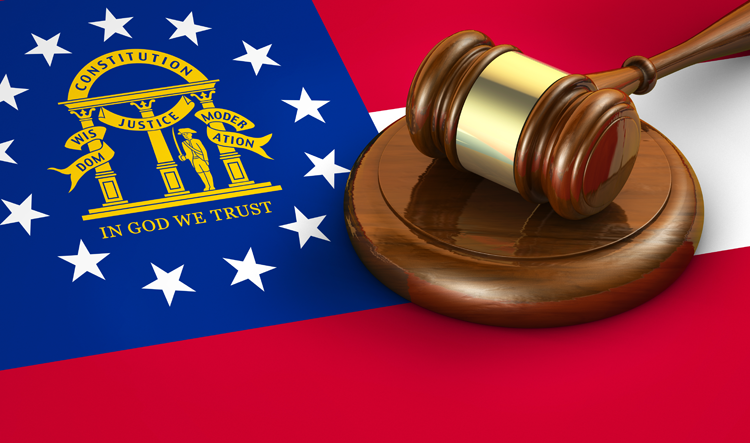
Wellness Regulation
Georgia can immediately implement abortion law defining fetus as ‘natural human being,’ 11th Circuit policies

Image from Shutterstock.
A Georgia abortion legislation increasing the definition of a “natural person” to include things like a fetus or an embryo is not unconstitutionally imprecise, a federal appeals court ruled Wednesday.
The 11th U.S. Circuit Court of Appeals at Atlanta upheld the 2019 legislation and its ban on most abortions following a fetal heartbeat is detected, which transpires at about 6 months of pregnancy.
The July 20 belief by Decide William H. Pryor Jr. refers to the clinics challenging the regulation as “abortionists,” Law360 notes in its coverage. His opinion was joined by Judges Barbara Lagoa and Harvey Schlesinger, a trial-degree federal decide sitting by designation.
The appeals courtroom mentioned the fetal-heartbeat provision is constitutional pursuing the U.S. Supreme Court’s June 24 choice in Dobbs v. Jackson Women’s Wellbeing Group, which overturned Roe v. Wade and Planned Parenthood v. Casey.
And the court docket stated the new definition of a purely natural person is not unconstitutionally imprecise on its facial area, despite the fact that there may well be vague apps of the definition in other areas of the Georgia Code. In these kinds of situations, the definition can be challenged as utilized to constitutionally safeguarded perform, the courtroom claimed.
In a “highly unorthodox go,” the appeals court docket granted an rapid remain of a decrease courtroom injunction that blocked the legislation, which authorized the 6-week abortion ban to choose result promptly, in accordance to a push launch by the American Civil Liberties Union of Ga. Commonly, a mandate is not issued for 28 times.
The Georgia legislation is known as the Residing Infants Fairness and Equality Act. It amends the definition of natural man or woman in the Ga regulation to include “any human being such as an unborn baby.” The law defines an unborn child as “a member of the species of Homo sapiens at any stage of improvement who is carried in the womb.”
The Ga legislation has exceptions to the 6-week abortion ban that enable abortions in situations of rape or incest when a police report is submitted, when the mother’s life is at chance, or when the fetus isn’t practical since of a clinical ailment, according to the Linked Press.
Lawyers for the state mentioned the new all-natural individual definition could allow mom and dad to declare a fetus as a dependent on their point out profits taxes and could extend little one assistance obligations to cover healthcare expenses of pregnancy, in accordance to prior protection by the Related Push. The law could also include fetuses in inhabitants counts, the Ga Recorder experiences.
Abortion clinics challenging the legislation pressed two arguments in their obstacle to the redefinition of a normal particular person. First, they argued that the provision burdens physicians’ right to pursue a preferred job of offering care for expecting gals. Second, they argued that the definition burdens the legal rights to procreate.
“These arguments fail,” the 11th Circuit mentioned.
In accordance to the Ga Recorder, the challengers experienced argued that the expanded personhood definition forces all those who select to procreate to incur pointless clinical danger induced by physicians’ fears of prison penalties for supplying treatment, these types of as amniocentesis and miscarriage care.
U.S. District Judge Steve Jones of the Northern District of Georgia had elaborated on vagueness difficulties when he enjoined enforcement of the legislation and the personhood definition in Part 3 of the act in 2020.
“If Segment 3 is not enjoined, a expecting female with an feeding on dysfunction would be guilty of child cruelty,” he wrote. “Health care providers would operate afoul of [state law] for failing to report a pregnant individual living with an abusive husband or wife.”
There are also fears of medical professional prosecutions below reckless carry out statutes for care that generates an unjustified risk of hurt to a fetus.
The American Civil Liberties Union, the ACLU of Ga, the Centre for Reproductive Legal rights and the Planned Parenthood Federation of The united states experienced submitted the problem on behalf of abortion vendors and an advocacy group, in accordance to the Associated Press and the ACLU of Georgia.
The case is Sistersong Females of Color Reproductive Justice Collective v. Governor of the Condition of Georgia.



